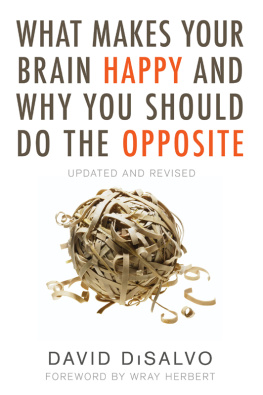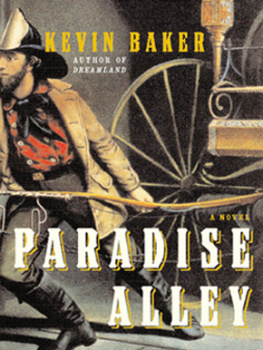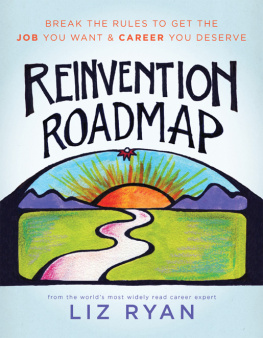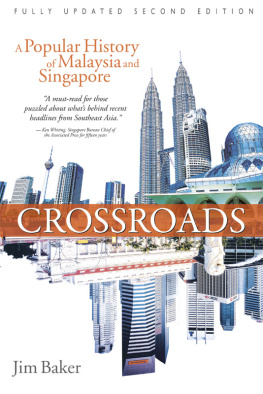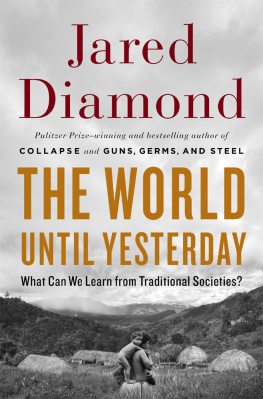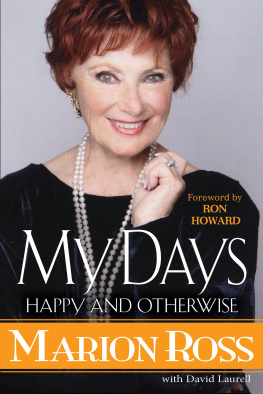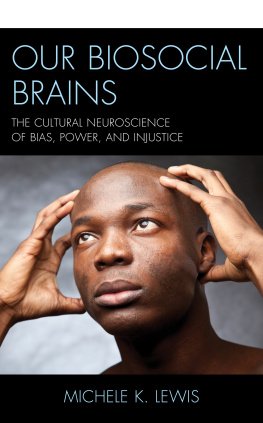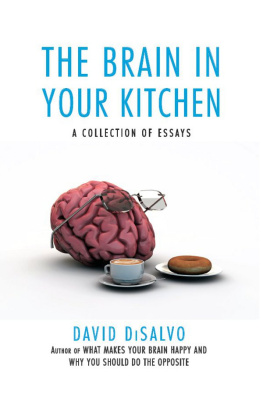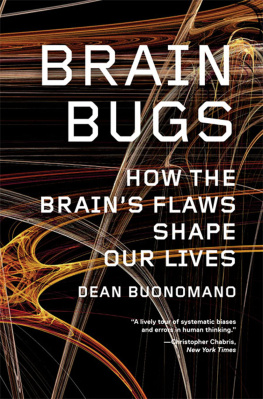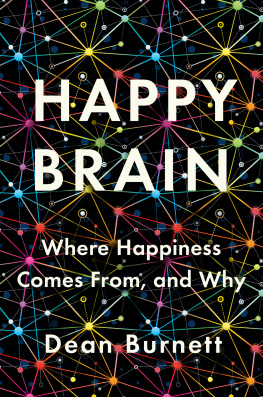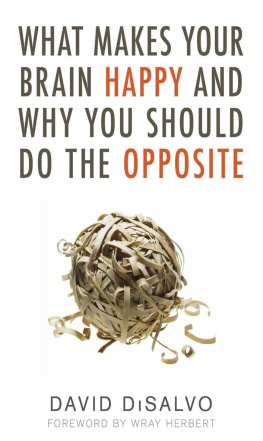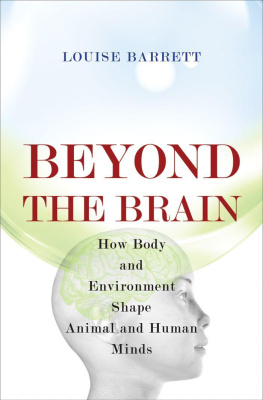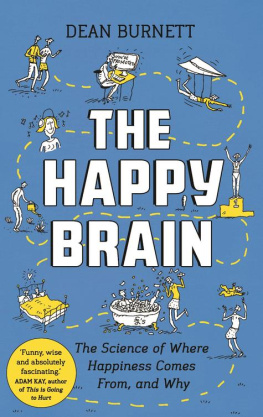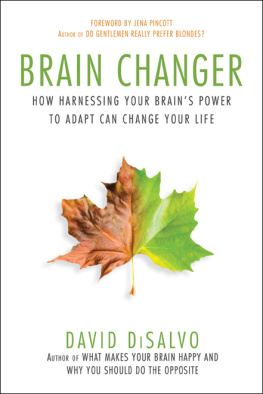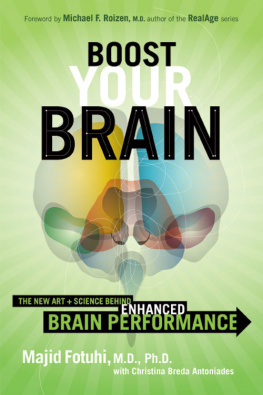I have so many people to thank for their help in writing this book, but none more than my family members who have supported me day after day, week after week, month after month. My kids, Devin, Collin, and Kayla, keep me pushing forward on this and every project I take on. I have no greater source of energy than their love and support.
I certainly would not have had the opportunity to write this book if not for the tireless efforts of my agent, Jill Marsal, whose advice and direction have proven invaluable. I would also like to thank friends who lent their time to help me think through arguments, edit documents, and provide feedback at various points along the way, including Jeff Neale, John Vick, Robert Vandervoort, Donald Wilson Bush, and Todd Essig. I have also benefited from an incredible network of fellow writers who generously gave me their time when I needed it most. David Dobbs offered priceless advice on where to begin as a science writer trying to gain traction in the marketplace. Mark Changizi provided tips from his experience as an author and was also gracious enough to refer me to his agent (who then became my agent as well). Carl Zimmer spent time reading through my original book proposal and offered useful feedback on how to make it stronger. Robert Burton offered lessons from his experience as an author that helped guide my steps moving forward. Daniel Simons provided extremely useful input as I was preparing the final draft of this manuscript.
Special thanks goes to Wray Herbert, who generously agreed to write the foreword to this book, and well before then set a standard for how to write solid psychology exposition that served as a model for me from day one. I am also indebted to my first editor at Scientific American Mind, Karen Schrock, for trusting in my ability to deliver quality content to a top-tier science magazine. As well, I would like to thank Ryan Sager, one of the best all-around journalists I know, who introduced me to the crew at True/Slant: Coates Bateman, Andrea Spiegel, Michael Roston, and Lewis Dvorkin, most of whom I am still working with at Forbes, and all of whom have contributed to my career.
Early on, when I first started my blog, Neuronarrative, I was fortunate enough to meet several people eager to help me succeed, including a multitude of scientists, authors, and others who gave me interview time without reservation. Those relationships have been crucial to everything else I've pursued since then; I'd like to thank everyone who gave me far more than the time of day, even when I cold-called you out of the blue.
A great deal of thanks also goes to all of the talented researchers who work diligently at research institutions and labs around the world to provide new understandings of complex behavioral issues. Without their tireless efforts, none of us writing in this field would have much to talk about.
Thanks and appreciation also go to the editorial staffs at Forbes, Psychology Today, and Scientific American Mind who have been tremendously supportive and helpful throughout our working relationship.
Reading this book may lead you to a realization that feels a little uncomfortable, at least at first. I say that not in some detached way, like a moralizing narrator, but as someone who is in touch with the discomfort. I felt a twinge of it when I started writing, and I became better in touch with it as the journey continued. As I said earlier, my entire reason for even starting the journey was to attempt to answer or at least work through my questions about decision making, learning, habits, bias, and many other factorsin short, to understand why we think as we think and do as we do.
The uncomfortable part is the realization that so much of how we think and why we act as we do is pinned to neuro-biological dynamics. I've never been a big fan of mechanistic thinking, and I'm not interested in becoming one of its endorsers, but even the most romantic of souls must admit that there's a machine at work in all that we are. It's not a machine like your car or laptop, but one infinitely more complex, with a lot of murkiness in the machinery.
And yet, it's a kind of machine, and it runs in line with certain principles that we can grasp, with certain tendencies and machinations that we can glimpse. One such is the reward center, which I've touched on throughout the book. When you begin to really understand what the brain's reward center is about, you get in touch with its integral role across our lives. It's not merely about seeking pleasure, feeling good, or any of the other simplistic explanations you see in popular media. It's the central pathway that enables us to learn, love, and achieveand to become compulsive, impulsive, and addicted.
I'm especially fascinated by the reward center because it's an excellent example of the lightdark principle of our human capacities. The energy that fuels drive and passion is vital when we need it, but the same energy fuels impulsiveness and rage, which are dangerous and self-destructive. The mojo that moves us forward to learn and master knowledge is the same that can enslave us to compulsive behaviors, which lead to our unraveling. The spark that helps keep us safe by alerting us to danger is the same that can lock us in anxiety-ridden cages we feel incapable of escaping.
In all cases, you can see the lightdark at work. It's an inescapable realityperhaps the most inescapable of all our realitiesthat we live on the slide of these spectrums, and how far we slide in either direction changes our lives.
Why should knowing this make you, or me, uncomfortable? I think the first reason is that the knowledge is at odds with what we're coached to believe from infancy onward. In a sense, we are covered with delusions layered on us by cultural forces from the moment the doctor hears the telltale cry in the delivery room. Humans, at least in Western cultures, are trained to believe that we're set apart from the rest of the animal world. Many of us are fitted with a set of blinders that force our perspectives into insulated silos radically out of touch with our inner realities.
Later on, we start running headlong into situations that challenge our blindness. The more we run into them, the more we fling and flail in ways out of line with what was supposed to work for us, the more questions we ask. Some of us look for answers from those whom author and philosopher Michael Novak called the mythmakersthose powers and personalities who exert tremendous influence in any culture. Maybe they're the same mythmakers who have been in our lives from early on, or maybe they're new ones we seek out as the vicissitudes of life drive us to find answers we haven't found through the normal channels. Others of us look elsewhere, to science and philosophy. Still others consult a mishmash of all of the above and more. Whatever the case, we're looking for answers because the delusional layering didn't deliver.
The irony of all of this searching is that we're carrying around the answers. What we really need is a means to understand what's resident within us. Not in a mystical sense, but in a self-diagnostic sense. We can't entirely rely on science to deliver this either, but I'd argue that scientific thinkingapplied to multiple categories of knowledgeis the best tool for developing a self-diagnostic approach. This book is a compendium of self-diagnostics, using what I've termed science-help (rather than self-help) to achieve more clarity about why we think as we think and do as we do. Science gives us the starting points, the clues, to delve deeper; and science-help is about moving forward from those starting points.

